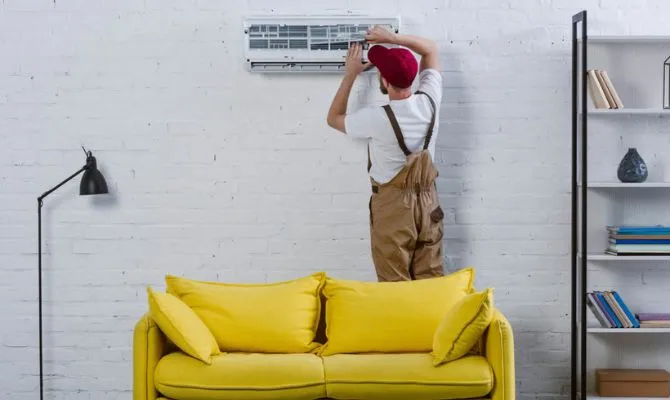Sleep! It’s something we generally take for granted until we begin to have problems getting enough of it.
Why should we care? Sleep is essential to our mental and physical well-being. It helps our brains work properly, preparing us to learn and remember new information. It also helps to heal and repair our blood vessels and our heart to keep them functioning well, and it keeps our immune system in good order. Getting quality sleep when you need it helps you function well throughout the day; a lack of sleep can make you less productive and more irritable.
One way to ensure we get good quality sleep is to ensure that the environment in our bedrooms is conducive to sleeping well. Temperature is a key component of creating the proper sleep conditions.
How Does Temperature Affect Sleep?
People vary in their preferences for room temperature when they sleep, which can make it challenging for couples who share a room and a bed. However, preferences aside, cooler is generally better than warmer. Our own core body temperature dips at night as part of our circadian rhythm, the internal body clock. The drop begins about two hours before you go to bed, coinciding with your body’s release of the sleep hormone, melatonin. As we sleep, our temperature continues to drop. It reaches a low point in the early morning, when it gradually begins to climb again as the morning progresses.
A warm bedroom environment conflicts with this natural process; not only is keeping the bedroom cool is a signal to our bodies that it’s time for sleep, but it allows us to get our best, restorative sleep. Respected health-care organizations such as the Cleveland Clinic recommend that the best temperature range for sleeping between 60 to 67 degrees Fahrenheit, or 15.6 to 19.4 degrees Celsius.
Meeting Temperature Targets
It should be easy to achieve the right temperature for sleep, you may think. I’ll just lower the thermostat before bedtime and I’ll be all set. However, if you aren’t accustomed to sleeping in a cool bedroom, you may want to adjust gradually, lowering the temperature by one degree per week.
Of course, this approach assumes that you’ll remember to adjust your thermostat. If you’re forgetful, a smart thermostat can help; you can program it to raise and lower the temperature at specific times. Take advantage of technology to simplify this household task.
You may also want to factor in cost. In the summer, it may be expensive to drop the temperature so low using central air conditioning. Ceiling fans in bedrooms may make it more economical to adjust temperature for sleep.
Temperature variation is also a consideration. Your bedrooms may be on higher floors and can be warmer than the thermostat indicates. You may also need to have some bedrooms warmer than others. Babies, whose systems haven’t fully developed, and elderly people, generally need to sleep in rooms that are a bit warmer than average. If this is an issue in your home, you might want to consider a zoned heating/cooling system that allows you to control the temperature in each designated zone separately.
There are other ways to keep your bedroom cool, as well. You can keep curtains or blinds closed to regulate the temperature during the day; open windows to allow for ventilation; use breathable bedding or move to a lower floor of the house during the summer. In addition, you may want to control the humidity in your bedroom.
Humidity and Sleep
The ideal indoor humidity level for your home is between 30 to 50 per cent. If the level is too high, you may feel hot and sweaty in summer and cold and clammy in winter. If it is too low, your sleep can be interrupted; you may awaken during the night with a scratchy throat or nosebleeds from the dry air.
To ensure that you have the proper level of humidity in your bedrooms, you should determine if the air-conditioner is the proper size for your room. If it’s too large, it will cycle too quickly to control the room’s humidity.
You may want to consider installing a whole home humidifier or dehumidifier to control the moisture in the air of each room in your house or simply obtain individual units for each room. These devices can improve sleep quality, as a bonus, it can prevent mould and rot.



